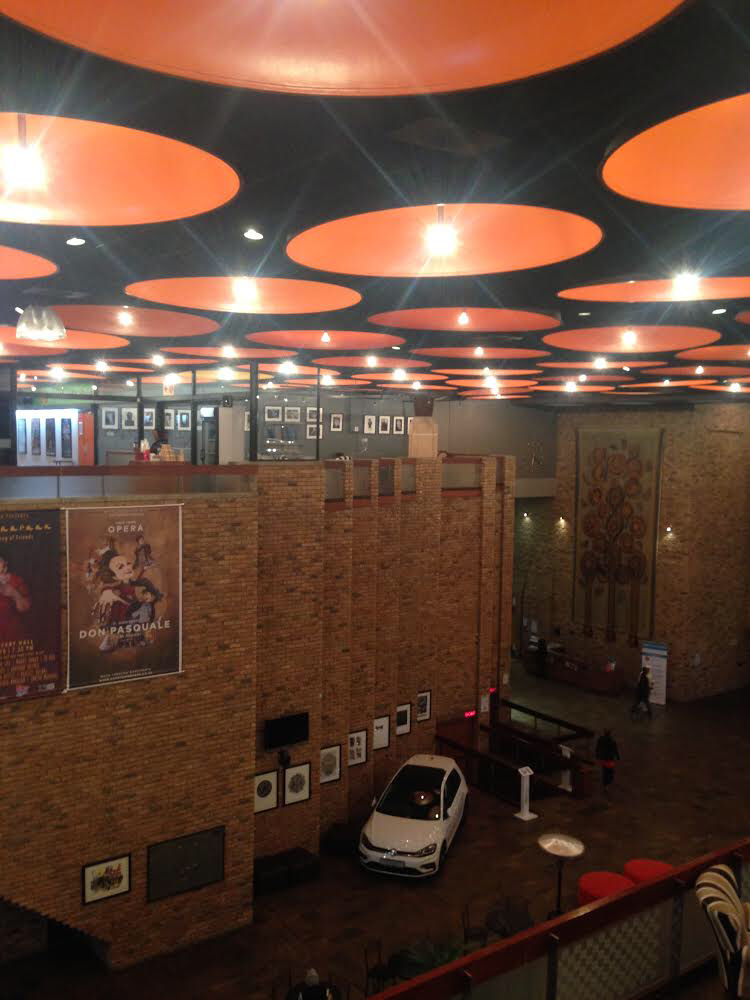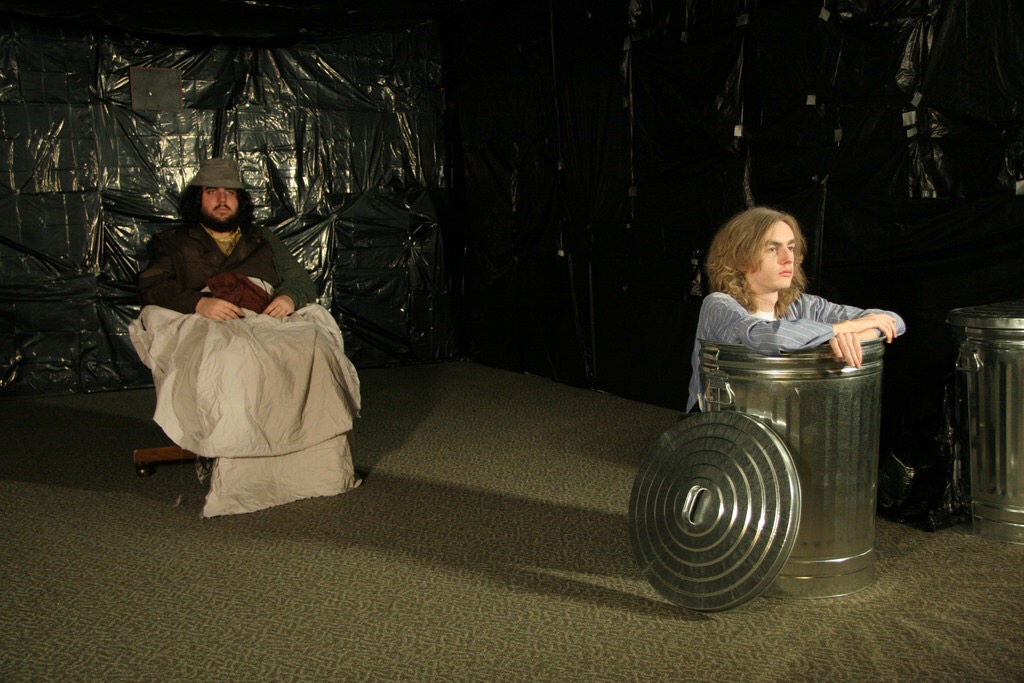Last week I went to watch Endgame. I had never seen a Beckett play before—not because I am anti-Beckett specifically, more just that I never felt as if I needed to. I am living proof that you can go far in life without seeing a Beckett play. Also, there is a list called “Writers Who Are Not Funny in the Traditional or Indeed Any Other Sense, But Some People Nevertheless Insist on Participating in the Fiction that They Are ‘Actually Hilarious,’ ” and it feels to me that Beckett is at the top of that list. He is not funny, or at least not on the page. Looking at pictures of his terrifying avian face, it feels like he was perhaps not very funny in person, or at least that he considered humour to be beneath him. I don’t know if this is an aggressively philistine position to hold, or whether it is widely understood that Beckett was an incredible hoot to be around, or whether I have got my ideas about Beckett mixed up with a story I once heard about J. M. Coetzee at a dinner party (apparently he did not talk or smile once throughout the whole meal), because as well as never having seen a Beckett play, I have never once had a conversation about him or even looked him up on Wikipedia. I just never felt as if I needed to. What I can tell you about Beckett’s personal life for certain is that he looked like a hot eagle and he once had an affair with James Joyce’s daughter.

Last week though, the time came. Beckett time. I got to the theatre early, and it was mostly empty except for a white car parked all weirdly and suggestively in the corner of the lobby. I am a woman of the world—I have seen cars in places where cars don’t usually go before—but the little white car in the corner of the lobby immediately struck me as completely, profoundly insane, and so, so, so funny. It was there because of some kind of raffle, obviously, but something about the emptiness of the lobby and the way the car was kind of crunched up all lurking in the corner made me feel as if the car had got there of its own accord, and was waiting to drive up the stairs and come watch Endgame with us. I might have found this extra good because I was subconsciously gearing up to derive enjoyment from the inscrutably absurd, but I maintain that it was genuinely funny. I maintain that although humour is subjective, we can make a few rules, draw a few lines. On the one side of the line is “cars driving up the stairs on their own to watch a play lolol.” On the other side of the line is “people sitting in dustbins and wearing olden times ‘nightcaps’ while one actor walks stiff-leggedly around the stage saying over and over that it is nearly finished, that it has to be nearly finished.” That is what happens in Endgame, as you know, and it is not funny, as we have agreed.
If watching a Beckett play has taught me anything, it is that there does not need to be a discernible point to a story. There is, however, a point to this one: Endgame is a good play, and the performances were uniformly excellent, and if you are in Cape Town you should go and watch it. Jokes, that’s not the point, although you should go see it if you are here. The point is that I honestly cannot remember the last time I had what is referred to as “an unmediated experience of art.” Can’t remember the last time I saw a movie or watched a play or went to an opening or read a book knowing hardly anything about it or the person who created it. This is certainly my own fault, but it feels like pulling this off is harder than it used to be. Would I have enjoyed this performance of Endgame as much if I had read beforehand that it was, I don’t know, “an urgent piece of theatre that feels as shockingly necessary today as it did 60 years ago”? Maybe, but probably not. The point of this story is that it was so nice, for once, to sit in the dark and try figure out what was happening all on my own.







